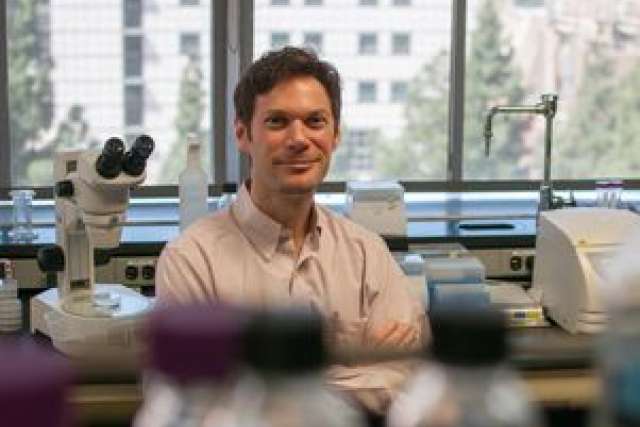A UCLA research team led by Patrick Allard, assistant professor of society and genetics, has been awarded a $1.1 million grant from the John Templeton Foundation as part of the foundation’s funding efforts for research into genetics.
The project’s co-leaders are Amander Clark, associate professor of molecular, cell and developmental biology, and Hannah Landecker, director of the UCLA Institute for Society and Genetics, and professor of sociology, who uses the tools of history and social science to study contemporary developments in the life sciences, including epigenetics.
The big questions Allard and his UCLA colleagues will address concerns whether we all have the same chance to live healthy lives and how much power individuals have over their own health. To what extent is our health pre-determined not only by our parents’ health, but going back several generations?
“We hope that our findings will help us better understand how environmental exposure information is transferred across generations,” Allard said.
He and his research team focus on the prevention of adverse health effects from environmental exposure to chemicals. Are the effects of such exposures passed on through generations and if so, do the diseases people are infected with have ancestral origins?
The field of epigenetics — the study of changes in gene expression caused by mechanisms other than changes in the DNA sequence — will play a key role in answering these questions, Allard said. Epigenetics reveals how sensitive our genome is to environmental changes and how this sensitivity changes how, where and when genes are expressed, ultimately affecting our health, he said.
“We will formally address the main concern with the existence of environmental effects on the epigenome in mammals, specifically focusing on mammalian germ cells, the cells that give rise to sperm and eggs,” Allard said. “Interestingly, germ cells almost completely erase and re-establish their epigenomes at each generation in early germ cells, offering some hope that we can all start with a clean slate, devoid of the burden of our ancestor’s exposure. No one however has tested this directly in mammals, even if in other, smaller animals this inheritance has already been proven. Thus, in this project, we will test the ability of mammalian germ cells to reset our environmental past that caused epigenetic errors.”
The researchers will use recent stem cell advances to generate mouse and human germ cells.
In addition to answering important biological questions, the researchers will explore the social implications of advances in epigenetics.
The researchers will organize a workshop at UCLA on environmental epigenetics and transgenerational effects, in which leading scientists will present the latest research in this field.
Sir John Templeton, an exceptionally successful global investor and prominent philanthropist who never flew first class, was optimistic about the power of the sciences to advance our understanding of the big questions.
“Sir John Templeton’s philosophy and vision have a strong personal resonance, particularly his goal of promoting learning and social benefit, with humility and open-mindedness,” said Allard, who, as an adolescent in France tutored refugees’ children. He has received numerous awards for developing new tools that replace the need for animal research.
The John Templeton Foundation serves as a philanthropic catalyst for discoveries relating to the deepest and most perplexing questions facing humankind, and encourages projects that spur curiosity and accelerate discovery.



